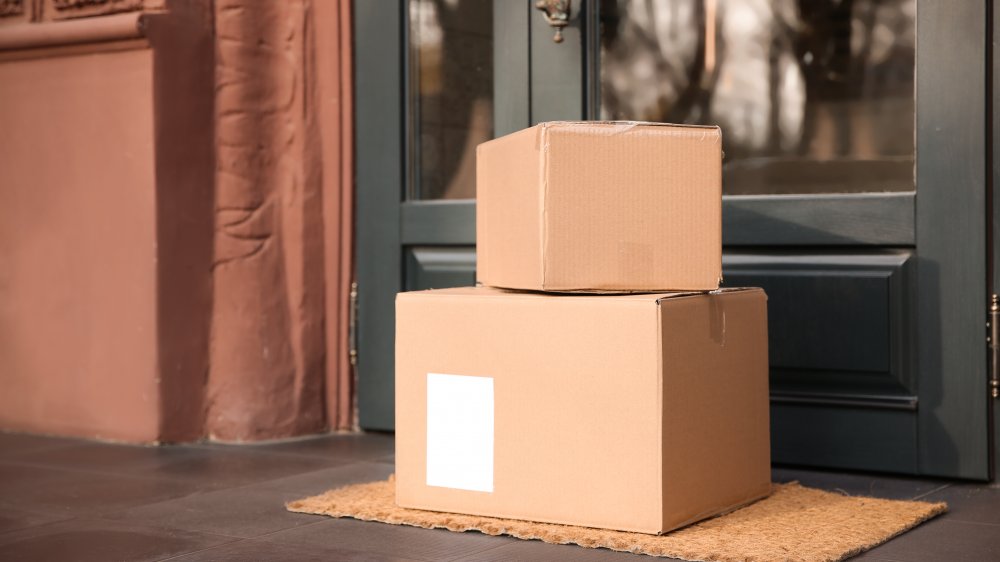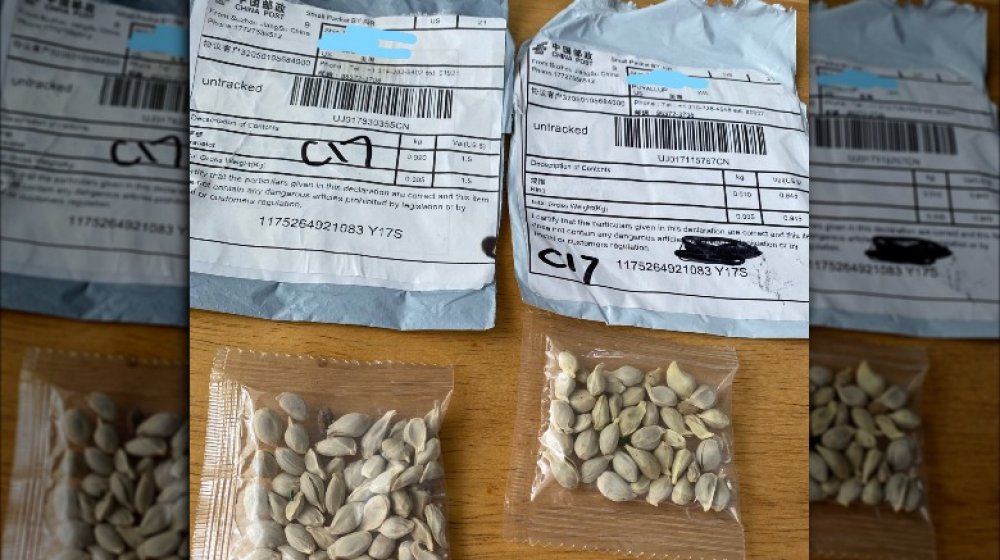The Latest Amazon Scam Could Mean Your Personal Info Is At Risk. Here's Why
With all the online shopping we've been doing lately, we wouldn't be surprised if you lose track of the things that you have coming to you in the mail. But if you're getting things you're sure you wouldn't have ever been interested in — like flashlights, Bluetooth speakers, or a computer vacuum — the Better Business Bureau says its time you paid attention, because you could be the victim of an online marketing scam known as "brushing."
Brushing usually involves a company sending you free merchandise with the intention of making it look as though you are a verified purchaser — they may even write a fake positive review. But the BBB cautions, "You are not the one who hit the jackpot. A scam company is the real winner."
There is a dark side to brushing that involves more than just getting free stuff in the mail. "The fact that someone was able to have the items sent to you as if you purchased them indicates that they probably have some of your personal information such as your name, address, and possibly, your phone number," the BBB said (via USA Today).
Free stuff comes with a price
The BBB further cautions about your personal details, "Once the information is out there on the internet, it could be used for numerous crooked enterprises." If you suspect you might have been targeted by a brushing scam, you'll need to make sure your personal data hasn't been compromised by checking our bank statements and credit card reports (via CNN).
But if your mysterious package happens to be full of seeds from China, as people in all 50 states have discovered in the past week, CNN says you'd be wise to contact your state plant regulatory official, and keep the packaging and mailing label intact for the U.S. Department of Agriculture to look at. Don't open the seed packets or plant them, and don't throw the seeds in the trash. "APHIS is working closely with the Department of Homeland Security's Customs and Border Protection and State departments of agriculture to prevent the unlawful entry of prohibited seeds and protect U.S. agriculture from invasive pests and noxious weeds," a spokesperson for the U.S. Department of Agriculture tells Fortune.

